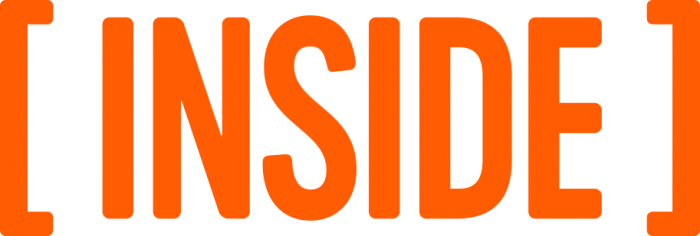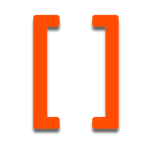Header image: Nubelson Fernandes on Unsplash
What were you doing when you started to read this article? If I was asked to place a bet, it'd be that you're working. You saw the link on Twitter or someone DM'd it to you (for which I'm grateful!).
So, you're technically in the middle of your work day, but you're reading this instead.
You don't feel bad about this, of course. Because you work all day long and it would be impossible for you to be working at peak productivity for 8-10 hours in a row. That's just not how attention works.
But, after a few moments, you'll realize you probably shouldn't be taking however long it takes to read this whole thing, and you'll click away. Back to a work tab, or Slack, or a Google Hangout chat with a friend. You'll leave this tab up, because you kind of want to see where I'm going with this, but you might not ever get back to it.
Tonight, when you're winding down and getting ready for bed, you might click back here and through half a dozen other tabs, realize "eh, I don't really care about that anymore," and close it out. Tomorrow, you start the cycle again.
This is how the work day goes now for tens of millions of Americans, and many more around the world. We're stuck in a work cycle that our brains didn't really evolve for, so we've come up with a number of distracting tools to help us get through the day: Twitter, YouTube, and articles like this, known broadly as CONTENT.
If the human brain did function the way most employers probably wished it did – i.e. an employee can work efficiently and happily for 8-10 hours without distraction – the CONTENT industry might not exist! Traffic to Twitter, Facebook, and Reddit would plummet, at least during the work day. (Netflix and YouTube would probably be fine – streaming sites get a surge of traffic during internet rush hour in the evening, after most people are done with work.)
So, why are we so easily distracted and what can we do about it?
The Productivity Problem
A funny thing about us humans is that we want to be productive. We like feeling a sense of accomplishment and purpose. We like doing a job well and then getting praise for it.
However, the work day has evolved to present us with myriad challenges to achieving that productivity. One reason is that we're overwhelmed. Having too much to do can prevent us from being productive at any one thing, especially during the pandemic, when we're even more likely to be feeling fatigue and burnout.
And then there's Slack, the work-messaging platform that can alert employees when any co-worker sends a message...about anything. Here's what productivity consultant Lucas Miller told Wired about Slack:
With email you know you probably have time to read through a bunch of messages and have a day to respond. Slack is instant and we get a rewarding hit of dopamine every time we respond to someone or someone reaches out to us to let us know a member of our 'work tribe' needs us. It makes us feel valued and informed, but it also makes us fearful every time an alert comes in that we’ll be out of the loop or ill-informed if we don’t check a message, even though very few truly need our instant attention.
Slack has revolutionized how digital companies operate, but it's also a fine-tuned distraction machine, frequently averting our attention from what we're working on during the day (and, increasingly, at night). We see a notification and feel an immediate impulse to read, react, and respond. Regardless of our own motivations – whether it's eagerness to impress a superior, fear of missing an important message, or something else – Slack encourages us to stop what we're doing and move our attention away, and then attempt to pivot our focus back.
One digital distraction expert even estimated that it takes an average of 23 minutes and 15 seconds to return to a task after an interruption. (tweet this)

In fairness to Slack, this isn't entirely its fault. Some workers were getting email notifications long before the launch of the ubiquitous communication platform, and it's not like distracting online content just started popping up in the last few years. However, Slack appears to be the culmination of decades of attempts to further optimize digital work.
And disentangling the platform from our lives and reasserting our own control over work is just another assignment on our to-do list. The New York Times' list of ways to silence and remove Slack from our focus almost looks like a challenge: IF you can manage to mute some channels and turn off notifications at night, you MIGHT feel a little less pressure on and off the job.
Plus, some employers want to see their workers putting in extra hours on nights and weekends. This is likely just one of many reasons why people are working longer hours since the start of the pandemic.
The good news and the bad news: neuroplasticity
Our brains are adaptable and changeable, even into adulthood. The bad news is that the modern tools we use to try and be productive have altered how we think and work. Our brains develop new pathways based on our behaviors and habits, and these pathways change when our behaviors change. This is neuroplasticity.
As an example, my own writing process is undoubtedly different from someone writing about productivity 100 years ago. Upton Sinclair wasn't thinking about what links to include and what phrases to place in italics or boldface for added emphasis. The reality we live in and the methods we use to communicate form different pathways in our minds. Because of neuroplasticity, it probably wouldn't take Upton Sinclair all that long to become a muck-racking blogger with 300,000 Twitter followers if he was transplanted into 2021. (To dive deeper into how the method of writing influences content, check out Medium Theory.)
Neuroplasticity also explains how our brains have learned and molded to this distracted way of working. The internet may have even primed us to look for distractions unconsciously. There's always a new video, tweet, article, gif, or message to look at. We expect it so much that it's natural to start seeking them out when our minds wander at work.
The good news: our brains are malleable and don't have to work this way.
If Slack were to disappear tomorrow, we would still find ways to keep in touch and get work done. Our brains would rewire to make sense of the current reality and adapt it to work for us. Slack isn't disappearing, though, so we have to take action on our own.
That might involve:
- Following the New York Times' steps for using Slack's functionality to make it less distracting.
- Setting aside a few hours every day where you are working "offline," if that's a thing you're able to do at your job.
- Try the Pomodoro Technique for working in 25-minute bursts.
- Building up the confidence to not respond immediately to coworkers or supervisors, thus setting boundaries and reasonable expectations for the future.
And remember, it's impossible, regardless of Slack or the internet, to be perfectly focused and effortlessly productive all the time. Our brains just don't work that way. Humans get distracted. Our minds wander. That's just what they do.
The internet didn't rewire our brains to distract us more. But content creators and app developers did take advantage of some of our natural, human tendencies toward mind-wandering.
So, give yourself a break in this world of distraction. Get your work done, but recognize that nobody's a robot, and about half your coworkers are probably noodling around on TikTok right now.
Go ahead – distract someone. Share this article on Twitter.
About the writer: Jonathan Harris is a writer for Inside.com. Previously, he wrote for The Huffington Post, TakePart.com, and the YouTube channel What’s Trending.




